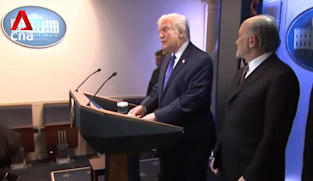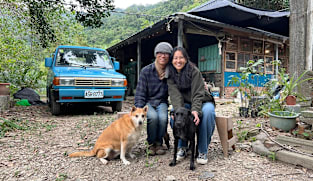Edwin Tong on Community Disputes Resolution (Amendment) Bill
The joint Bill by three ministries - Culture, Community and Youth, National Development and Law - sets out the framework to manage community disputes in three key areas. Firstly, it will strengthen the community mediation framework, empower authorised officers to direct disputing neighbours to attend mediation at the Community Mediation Centre and effectively make mediation mandatory. This move will strengthen their ability to bring neighbours together in an amicable environment to discuss their differences and understand each other’s perspectives. Mediation will be a measure of "first resort". Secondly, the Bill proposes the setting up of a dedicated Community Relations Unit (CRU), in which officers will have a range of investigative and enforcement powers to intervene in disputes between neighbours. These include issuing advisories, warnings and abatement orders. The CRU will focus on addressing severe noise and hoarding disamenities cases, plugging in an existing gap where agencies do not presently have sufficient powers to intervene to more effectively deal with some individuals who are seriously disrupting community harmony with their behaviour. The CRU will be piloted in the HDB estate of Tampines Town and will help the Government understand how to effectively scale up its operations and make it effective and efficient islandwide. Thirdly, the Bill enhances the powers and processes of the Community Disputes Resolution Tribunals. It will deal with a small fraction of cases that will be harder to resolve, where parties might be intransigent and the issues have become deep-rooted. Culture, Community and Youth Minister Edwin Tong, who outlined the key features in Parliament on Tuesday (Nov 12), hopes that the amendments will address many of the cases that are escalated to agencies every year. He stressed that these cannot be seen as a “silver bullet”. Ultimately, it is “delicate work” to balance intervening too much with a framework and empowering neighbours themselves to take ownership and responsibility and resolve their own difficulties themselves. Mr Tong stressed the need to build a gracious society where neighbours are conscious of their role in the community, exercise mutual consideration for one another and where differences are "best bridged through discussion and compromise and not necessarily by direction or order".
The joint Bill by three ministries - Culture, Community and Youth, National Development and Law - sets out the framework to manage community disputes in three key areas. Firstly, it will strengthen the community mediation framework, empower authorised officers to direct disputing neighbours to attend mediation at the Community Mediation Centre and effectively make mediation mandatory. This move will strengthen their ability to bring neighbours together in an amicable environment to discuss their differences and understand each other’s perspectives. Mediation will be a measure of "first resort". Secondly, the Bill proposes the setting up of a dedicated Community Relations Unit (CRU), in which officers will have a range of investigative and enforcement powers to intervene in disputes between neighbours. These include issuing advisories, warnings and abatement orders. The CRU will focus on addressing severe noise and hoarding disamenities cases, plugging in an existing gap where agencies do not presently have sufficient powers to intervene to more effectively deal with some individuals who are seriously disrupting community harmony with their behaviour. The CRU will be piloted in the HDB estate of Tampines Town and will help the Government understand how to effectively scale up its operations and make it effective and efficient islandwide. Thirdly, the Bill enhances the powers and processes of the Community Disputes Resolution Tribunals. It will deal with a small fraction of cases that will be harder to resolve, where parties might be intransigent and the issues have become deep-rooted. Culture, Community and Youth Minister Edwin Tong, who outlined the key features in Parliament on Tuesday (Nov 12), hopes that the amendments will address many of the cases that are escalated to agencies every year. He stressed that these cannot be seen as a “silver bullet”. Ultimately, it is “delicate work” to balance intervening too much with a framework and empowering neighbours themselves to take ownership and responsibility and resolve their own difficulties themselves. Mr Tong stressed the need to build a gracious society where neighbours are conscious of their role in the community, exercise mutual consideration for one another and where differences are "best bridged through discussion and compromise and not necessarily by direction or order".



















